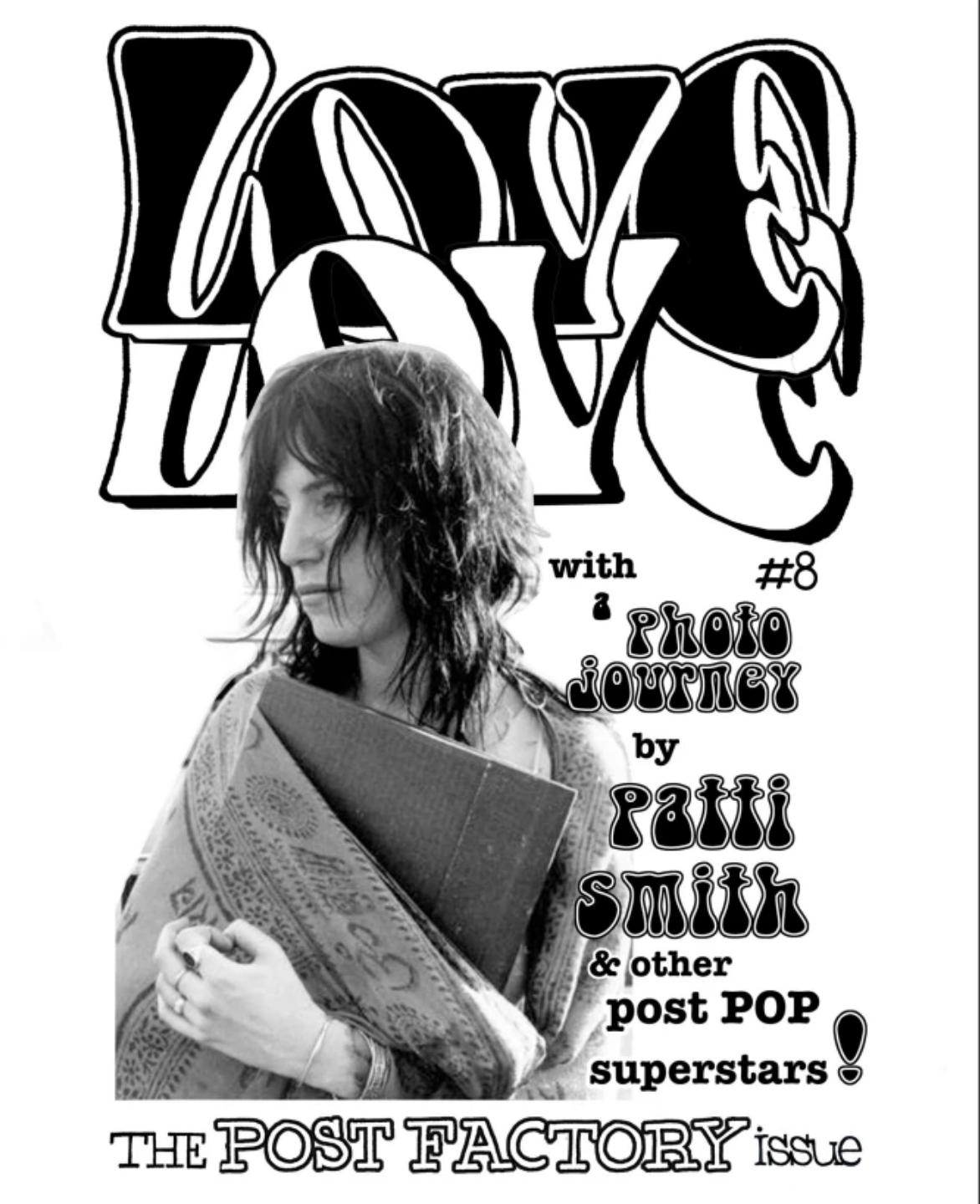I first met Andy at a New Year’s Eve party, which was being held by the friend of a friend in an abandoned aeroplane hangar, outside of Paris. He was surrounded by people and yet, moving across the invisible floor to catch a glimpse of the silver phantom in the corner, I
realised that he was completely, entirely alone.
Our next meeting is planned. I receive a hand printed acceptance for the dinner I had proposed, embossed with naked impressions and scented with cloves, telling me to come to the Factory and to dress myself in black.
I arrive at the address in Manhattan, which is now the entrance to a garage parking lot. My black turtleneck catches strangely in the steely reflection of the elevator and I appear like a witness ascending to join a heavenly trial. Perhaps, I think glumly, I am. Andy is lying horizontally on a white leather couch. Once again, he is adorned by many people and I feel nervous to approach him and expose myself with questions.
“Sit.” He says quietly.
He is the odalisque and so I have to obey him. He holds a camera close to his face, obscuring his expression, further concealed by a large pair of dark sunglasses. Up close, he is smaller than I expected, not the monolithic creature I had prepared myself to encounter.
He tells me he is making a movie and that he films everything. I ask what the movie is about?
“Why, it will be about my death, of course! What else?”
A masochistic exercise in self control, a practised voyeurism. Andy Warhol was the king of creating a product out of a self. Andy, in a certain sense, recognised this inherent cannibalistic quality, and exposed the art world to the baselessness of its own creation. We,
the people, were essentially buying ourselves.
“I want to capture their love, not their sex.” He tells me gently, referring evidently to the erotic selection of movies he made in the 1960s, like Blow Job (1964) and Blue Movie (1969). “They are my dolls and they are beautiful. I want them all.”
Desire is crucial and the erotic is always a performance. Silk screens, drag queens, silver Factory superstars. Soup cans, bananas, a collection of garish portraits of Warhol’s cultural idols.
1938, Pitsbourgh. A child afflicted by St Vitus’ Dance, confined to his sick bed. All around the walls have the eyes of movie stars and all American heroes. They watch him squirm for freedom. 1945, Schenley High School, a scholastic art and writing award. Art director of the student art magazine at Carnegie Mellon. Later, 1949, he moves to New York for good and creates Andy Warhol.
He looks at me through the myopic lens and I wonder what it is he sees. It is true he transforms the freakish, the outcasts, the kinky and most beguiling of figures into his muses.
I am sure it is true that he wants them all. But who did Andy Warhol love?
He wrote in his diary: “I wonder if it’s possible to have a love affair that lasts forever.”
Is it not a universal feeling? Surely, he loved the subjects that he sanctified in the name of art. He loved Marilyn and Edie. He was in love with Jon and with Jed. Perhaps he was obsessed with possession, fixated upon the illusion of love as something which could be consumed even though he suspected it may not sustain.
He, however ironically, quotes himself at length and thus, through image and word and sound, ingests himself.
I ask what it is like to be so watched. I cannot imagine such a conflation of the public and the private. How might that affect a person? How might it have affected the real Andy?
“There is no private self,” Andy tells me as I cut the Victoria sponge. “It is not a lie to present a face that does not belong to you: the lie is pretending that behind it lives another more pure and untainted version of that face.”
He takes a slice of cake, but does not eat it. He will not remove his mask but I am content to simply watch him, watching me. His ghostlike image flickers like a television screen, interrupted by the commercial break.
For a moment I see through him: Andy dies in 1987 at the age of 58. He dies in his sleep and for a second I see his closed eyes, rolling back into that dark screen, becoming the very thing he always longed to be. Frozen in time, an icon, revered and remembered beyond
himself.
“A legacy,” Andy says, taking the word from my mouth and articulating the feeling of peace I hope he felt in that New York hospital.
“Delicious.”
He pushes away the untouched cake and turns towards the open window. All of this fame and celebrity and art, all of it quites beneath us for a moment of bliss, pure bliss.

